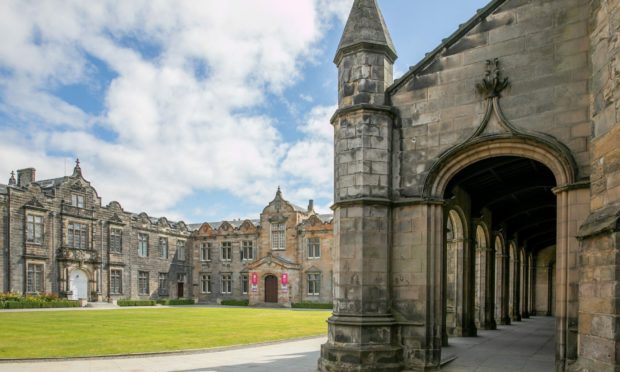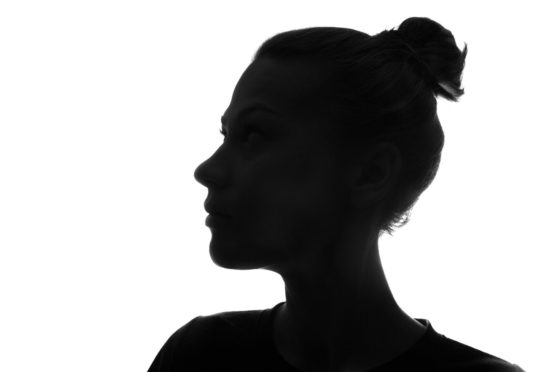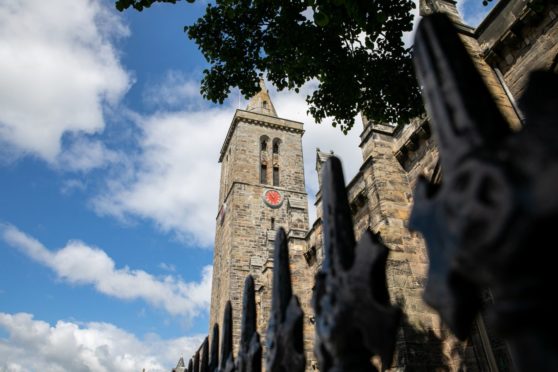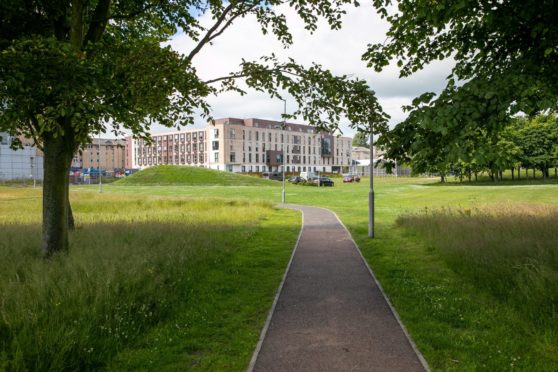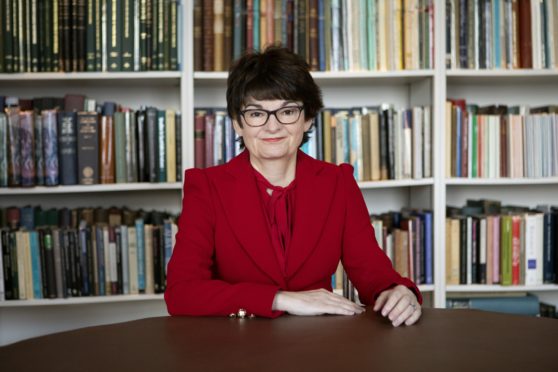Students have been sharing their experiences of how St Andrews University dealt with sexual assault cases during their studies in the Fife town.
Earlier this month BBC Disclosure Documentary featured two anonymous interviews with students – where claims were made of “victim blaming” and mistakes being made by the uni.
The institution rejected the claims and insisted all its policies and procedures were followed in those cases.
The documentary has received a mix response from students who have spoken to us about how their cases were handled.
One, who wishes to remain anonymous, says the initial handling of her complaint was good – but there was a lack of support in the months that followed.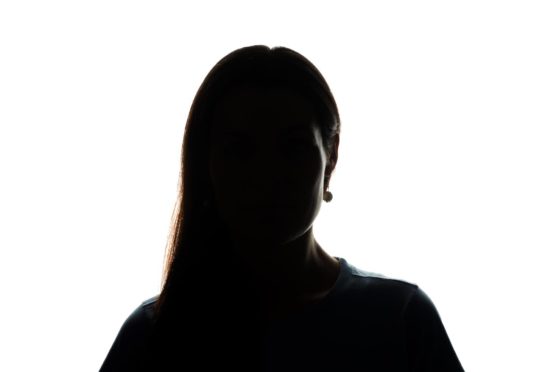
An anonymous student spoke out about her experience with St Andrews University’s handling of sexual assault allegations. She said: “I thought [the documentary] was pretty accurate because in my own experience I was raped in my first year here, which is obviously quite hard to go through.
“[My attacker] was removed from my halls and put into a different halls.
“Also, if I were to go to the library of the student union, he wouldn’t be allowed in while I was there and that kind of thing.
“I work in St Andrews too so he was told not to come in to the place that I work, that was all good.
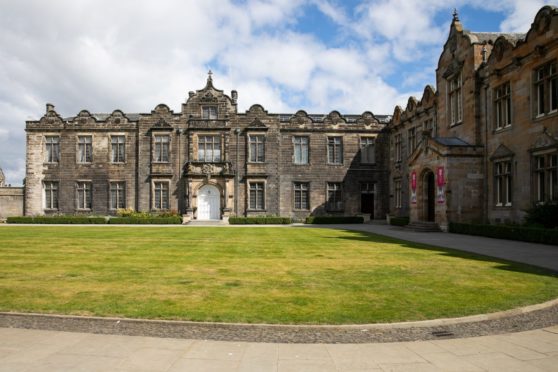
“I suffered PTSD after because, as you’d expect, it’s a very traumatic thing to go through and it still does affect me.
“I’ve since been in the PTSD counselling that I was offered by the uni.
“I had two sessions and then I was referred to an online platform which was rubbish, it was just reading through things that said ‘don’t be depressed’ and that kind of thing.
“I think they need to have a bit more support in place for when people have dealt with it and need more counselling support.
‘Not surprised’ at claims of mistakes
“I never experienced things like the university making mistakes or victim blaming but I’m not surprised that the uni would apparently make blunders.
“I just think there needs to be more of an empowerment of survivors and letting girls know that it’s OK to talk about experiences you’ve had.
“It can really make a difference once you’ve opened up about it.”
Miss M is an anonymous figure on Instagram who has spoken widely about her experience with sexual assault at St Andrews – and the university’s handling of her case.
Her account differs from many others.
She says the university helped her move out of the accommodation where she was raped, and assisted her with payments.
She also says the uni’s documentation of the incident and support through her court case was vital.
“I don’t think I’d be the person I am today without the support that I got from the University of St Andrews,” she told us.
‘I’m forever grateful for what the university did’
“I didn’t have my family there with me for support, I was at university.
“Ultimately, student services took that role, completely supporting me above and beyond what my friends were at the time.
“I’m going to be forever grateful for what they did.”
Miss M feels the documentary was not an accurate representation of the support provided by St Andrew’s University.
She is worried it may discourage students from coming forward.
‘I came forward and it changed my life’
Miss M said: “I can only talk from my own experience but I really want to stress that we need to be careful what we say because it does affect the next people that come forward.
“I do this anonymously and I share my experiences to prove the services for others and I can’t stress enough that I want people to come forward – it changed my life.
“I lived for three months without telling anyone what had happened and then my first disclosure was someone at student services and as soon as I told that lady, my life improved.
“The isolation I was feeling and the trauma that I was going through at the time was alleviated by the support from student services.”
The Campus Safety Society group is calling for St Andrews to do more to ensure the campus is a safe environment – and offer survivors more support.
Meg Dyson, 21, the joint president and a fourth-year student, said: “The goal of our group is to change the environment on campus which allows sexual assault/harassment to occur.
“We are aiming to do this by campaigning for change within the university as well as providing extensive resource lists for survivors.”
Resource list to help survivors
The group wants a change to the disciplinary policy to create a “distinction between harm to property/university and harm to persons”.
It has also created a resource list to assist people in accessing help and support.
Abe LeGrant – the founder and joint president of the society – says since the documentary aired, the uni has begun to work more closely with the group.
The 20-year-old said: “While the university has definitely made some effort to help solve some of the problems that are present on campus, we still believe that the university has a lot more to do to help change the environment for the better.
“It should be a collaborative effort between the university and groups like ourselves.
“We know that these changes are not going to happen overnight but we are looking forward to continuing discussions with the university.”
Various ways of supporting students
St Andrews University says its sexual assault (non-academic misconduct) policy was reviewed last month, when representations and comments from students were taken forward.
It also says it has various actions under way to ensure students feel supported, while staff in student services are fully trained to support survivors.
Principal Professor Sally Mapstone said: “We continue to work with our students to create an environment in which they can come forward to disclose sexual violence, and trust that they will be listened to, supported, and looked after.
“Universities cannot change the world by themselves. But St Andrews and its students are leading the way in tackling issues of gender based violence.
“We were the first university in Scotland to introduce a compulsory consent module for all students.
“We were an early adopter of the Scottish Government’s equally safe toolkit and we successfully applied to be one of four Scottish institutions working with the charity EmilyTest on a gender-based violence charter.
“Our front-line staff are expertly trained by Rape Crisis Scotland, and we have introduced a ground-breaking reporting tool – report and support – co-designed with our students.”
